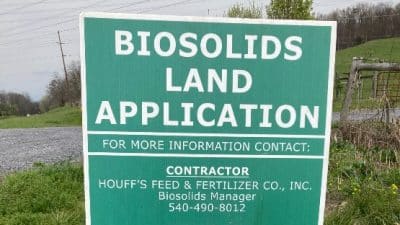Bills promise pro-business climate, incentives for economic growth, protection of small businesses
Republican members of the Virginia House of Delegates on Tuesday outlined their legislative agenda to foster job creation by maintaining Virginia’s pro-business climate, encourage and incentivize long-term economic growth, and enact regulatory reforms to protect small businesses from job killing mandates. House Speaker Bill Howell (R-Stafford), Majority Leader Kirk Cox (R-Colonial Heights), House Republican Caucus Chairman Tim Hugo (R-Fairfax), Appropriations Committee Chairman Chris Jones (R-Suffolk) and other House Republican members held a press conference highlighting the proposed legislation.
“One of the most important issues facing Virginia families right now is the economy,” saidSpeaker Howell. “Virginia continues to lag behind the national recovery and in 2014 Virginia registered zero percent in economic growth, 48th in the nation. This is unacceptable. The House of Delegates is committed to creating new jobs by maintaining Virginia’s pro-business climate, incentivizing long-term economic growth and protecting small businesses by reforming our regulatory process. The House has already taken steps to require legislative oversight of the federal government’s new energy restrictions and will vote soon on enshrining Virginia’s right to work law in the Constitution. These are important steps to strengthen our economy.”
Majority Leader Cox is taking the lead on the House’s effort to encourage long-term economic growth by introducing HB834, establishing the Growth and Opportunity Board, the centerpiece of GOVirginia. The legislation will be presented to the House Appropriations Committee on Wednesday.
“Attracting new companies to Virginia is important, but we must encourage sustainable, long-term economic growth,” said Majority Leader Kirk Cox (R-Colonial Heights). “GOVirginia is a business driven initiative to facilitate more collaboration between the business community, higher education and local governments. By aligning the needs of businesses with higher education and local governments, we will encourage the creation of good paying jobs in high demand fields, all while making our economic development dollars go further. This will have a positive, long-term impact on Virginia’s economy. I look forward to presenting this legislation to the House Appropriations Committee on Wednesday.”
The House Appropriations Committee on Monday received a presentation on Virginia’s economic development spending. Since 2010, Virginia has spent over $679 million for economic development incentives, which outpaced overall general fund spending. Virginia currently has $97 million in outstanding incentives due for pay out.
“The investments we’ve made over the years demonstrate our longstanding commitment to strengthening Virginia’s economy. But the report we received yesterday should cause everyone to take a hard look at how we spend our economic development dollars,” saidChairman Chris Jones (R-Suffolk). “As the committee finalizes the House budget proposal for the next biennium, we will look to make targeted and strategic investments in economic development. We must carefully guard taxpayer dollars and ensure that we are getting a proper return on their investments.”
Other legislation includes Chairman Hugo’s bill to expand the research and development tax credit, Delegate Landes’ legislation requiring Virginia colleges and universities to report on their contributions to economic development and Delegate Miyares’ bill creating the Commission on Economic Opportunity for Virginians in Aspiring and Diverse Communities.
“House Republicans are proposing specific steps to improve Virginia’s economy,” saidHouse Republican Caucus Chairman Tim Hugo (R-Fairfax). “We remain committed to fighting against job-killing tax increases, burdensome regulations and new mandates. We are providing targeted incentives like the research and development tax credit to spur job creation in the fields of the future. We are protecting small businesses by enacting reforms to our regulatory structure. The House of Delegates continues to lead the way when it comes to creating jobs and improving the lives of all Virginians.”
House Republicans also introduced reforms to the regulatory process to protect small businesses. Legislative proposals include changes to the Administrative Process Act (APA) to include a cumulative economic impact of all regulations when a new regulation is proposed, and ensuring greater transparency throughout the regulatory process. Additional legislation has been filed to reform occupational licenses to ensure they are not overly burdensome on small business.
Pro-business climate
- HB2 (O’Quinn) Restores legislative prerogative on energy policy by requiring General Assembly approval before implementing the Clean Power Plan.
- HJ2 (Bell, D) Enshrines Virginia’s right to work law in the Virginia Constitution.
- HB18 (Head) Protects small business franchises from being overrun by big labor unions.
- HB66 (Byron) Credentials workforce training programs to encourage workers to get advanced skills.
- HB145 (Webert) Protects small businesses from being forced to pay prevailing wages.
- HB264 (Davis) Protects small businesses that contract with local governments from being forced to pay certain benefits or compensation not already required by law.
- HB508 (Yancey) Expands the worker retraining and career pathway tax credit to include outreach to middle and high school students.
Economic growth
- HB834 (Cox) Establishes GO Virginia which would create regional councils across the Commonwealth, consisting of representatives of government and the business and education communities to work on economic development initiatives.
- HB846 (Hugo) Creates the Virginia Collaborative Economic Development Performance Grant Fund that would give two or more localities that collaborate, eligibility for grants to aid in the expansion or relocation of a company in the Commonwealth.
- HB185 (Yancey) Expands the duties of the Virginia Economic Development Partnership to include encouraging the import of products and services from international markets to the Commonwealth.
- HB451 (Miyares) Creates the Commission on Economic Opportunity for Virginians in Aspiring and Diverse Communities to help identify ways to support minority communities.
- HB515 (Landes) Requires each public institution of higher education to annually report on the institution’s active contributions to efforts to stimulate the economic development.
- HB884 (Hugo) Creates a new tax credit to encourage research and development investments in the Commonwealth.
- HB217 (LeMunyon) Prohibits a locality from increasing its business machinery and tools tax, merchants’ capital tax, and local license (BPOL) fees and taxes above the locality’s rates in effect as of 2016.
Small Business
- HB462 (Head) Ensures greater transparency so that the public is fully aware of regulatory notices and can be made aware of a contact for the regulatory agency.
- HB499 (Yancey) Ensures that occupational licenses are the least restrictive means to protect public safety, and that any new licenses demonstrate a compelling need.
- HB644 (Leftwich) Designates that if a court finds a regulation has violated the APA, the regulation is immediately null and void.
- HB898 (Ransone) Requires any new proposed regulation to include a cumulative economic statement on all regulations affecting the industry.










